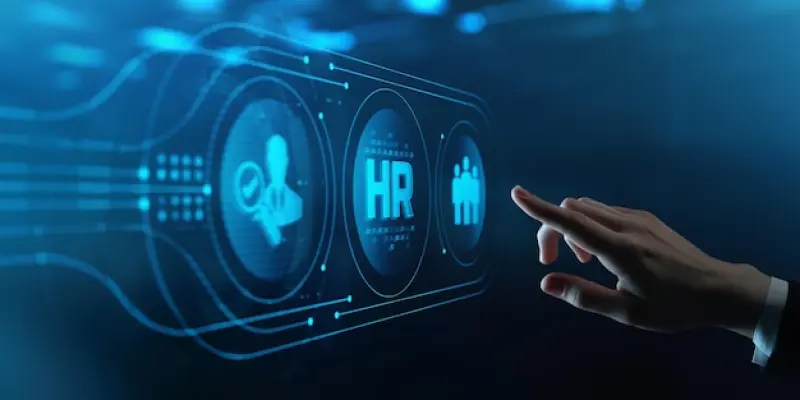The unprecedented influence of artificial intelligence (AI) on hiring practices by 2025 is reshaping how employers and job seekers approach recruitment. Rapid advancements in AI technology have streamlined the hiring process, making it more efficient and data-driven. Job seekers must adapt to these changes to remain competitive in the evolving job market. The transformation brought about by AI has fundamentally altered recruitment methods, necessitating a shift in strategy for candidates looking to secure their desired roles.
AI’s Impact on Hiring Practices
In 2025, AI dominates the hiring landscape, fundamentally transforming traditional recruitment methods. Employers now rely on AI tools to expedite resume screening, automate assessments, and generate personalized interview questions. These innovations have established AI as a key player in the hiring process, requiring job seekers to leverage similar technologies to stay ahead. AI tools swiftly scan and score resumes, eliminating considerable human effort and injecting precision into the hiring workflow. Companies benefit significantly from AI-driven solutions in their recruitment strategies. AI tools streamline resume screening by quickly aligning candidate profiles with job descriptions, efficiently narrowing down the candidate pool. AI-driven pre-screening chatbots conduct initial candidate screenings, posing relevant questions and filtering applicants before human recruiters intervene. AI also evaluates recorded video interviews, analyzing facial expressions, tone, and word choice, offering a nuanced approach to candidate assessment. Furthermore, AI generates role-specific skill assessments, grading submissions independently to provide objective evaluations of candidates’ technical and practical capabilities.
Implications for Job Seekers
The automated nature of AI in hiring necessitates a paradigm shift for job seekers. Traditional methods, such as generic resumes and standardized answers, are insufficient in this new landscape. Candidates must optimize resumes with precise keywords and formats compatible with applicant tracking systems (ATS) to stay competitive. Engaging in AI-simulated interview environments is critical for preparing for diverse interview scenarios dominated by AI, encompassing technical, behavioral, and live settings. Moreover, job seekers must diversify their interview preparation approaches to include various formats, anticipating AI’s role throughout the recruitment process. Practicing with AI-powered mock interview tools can help candidates refine responses, structure, and delivery. Utilizing AI as an assistant, rather than relying entirely on these tools, enhances personal efforts and capabilities. Candidates should view AI as a co-pilot, augmenting their preparation rather than completing it on their behalf. By embracing these strategies, job seekers can equip themselves to navigate the AI-driven hiring landscape effectively.
Benefits of AI-Powered Tools
AI-powered job search tools offer significant advantages for job seekers. AI resume generation platforms support candidates by auto-generating bullet points based on experiences, optimizing content for ATS keyword matching, and tailoring resumes for specific job descriptions. These tools format resumes into professional layouts and adjust tone based on the audience, enhancing the resume’s effectiveness. AI-powered mock interviews simulate real interviews tailored to specific roles, providing behavioral and technical questions aligned with the candidate’s profile. Feedback on structure, depth, and delivery is particularly crucial for career switchers and non-native speakers.
Advanced AI platforms create interview question banks based on resumes, job posts, and company profiles, helping candidates anticipate interview content. Tools like Verve AI offer peer-shared question banks and generate detailed interview reports, analyzing tone, pacing, content quality, and delivery. These features support candidates in refining their interview techniques and improving their overall preparedness. The advanced capabilities of AI-powered tools ensure comprehensive support for candidates throughout the preparation process, providing a robust framework for navigating the complex hiring landscape.
Real-Time Support and Ethical Considerations
During high-pressure interviews, real-time AI support tools like Verve AI’s Picture-in-Picture mode offer discreet smart suggestions and access to pinned notes. This functionality helps candidates stay focused and responsive while viewing the interviewer. These tools provide real-time assistance without distracting the candidate, enhancing their performance in live interview situations. Addressing ethical concerns, utilizing AI tools aligns candidates with prevailing hiring practices, reflecting the widespread use of AI by companies. The use of AI tools is essential for maintaining competitiveness rather than unethical behavior. These tools structure, provide insights, and offer feedback, ensuring the candidate’s authentic voice and preparation shine through. Embracing AI tools is about leveraging technology to enhance personal capabilities, mirroring the practices of modern recruitment strategies.
Adaptation in AI-Driven Hiring Landscape
By 2025, the impressive impact of artificial intelligence (AI) on hiring will transform how employers and job seekers approach the recruitment process. The swift advances in AI technology have revolutionized the hiring landscape, resulting in a process that is more streamlined, efficient, and heavily reliant on data. This means that both employers and job candidates need to adjust their strategies to keep pace with these changes. For job seekers, it’s particularly crucial to understand AI’s role in the hiring protocols to stay competitive within the ever-evolving job market. Techniques previously used for job applications may become obsolete as AI introduces new methods for talent acquisition. AI is not just automating the hiring process but also ensuring that the selection is driven by data and analytics, which necessitates job seekers to possess certain skills and adaptability. In essence, the shift brought about by AI demands a new approach for both sides of the job market, with candidates needing to rethink and recalibrate their strategies to secure their desired positions.

